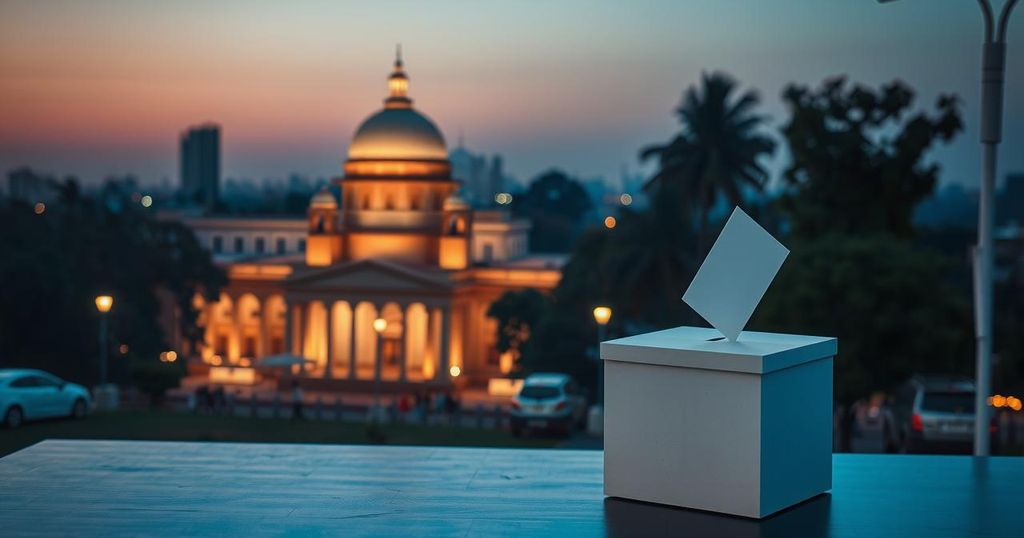The BJP has regained majority control in Delhi’s Legislative Assembly for the first time since 1998, winning over 40 of 70 seats. Prime Minister Modi lauded the victory, while Arvind Kejriwal of the AAP conceded defeat. The BJP’s campaign focused on economic support and infrastructure issues that resonated with voters, marking a significant political shift after previous losses.
Indian Prime Minister Narendra Modi’s ruling party, the Bharatiya Janata Party (BJP), has regained majority control of the Delhi Legislative Assembly for the first time since 1998, securing over 40 out of 70 seats in the recent election. BJP supporters celebrated this historic victory across the streets of the capital. Modi expressed gratitude for the voters’ support, emphasizing that “development wins, good governance triumphs.”
This victory is a significant setback for the opposition Aam Aadmi Party (AAP), which Arvind Kejriwal led since 2015. Kejriwal graciously acknowledged the results, stating, “We accept the verdict and congratulate the BJP.” His party had previously formed a government largely due to an anti-corruption platform. Following Kejriwal’s recent legal issues, including arrest on charges of alleged corruption, the AAP faced increased scrutiny and voter dissatisfaction.
Kejiwal’s tenure was notably shaped by welfare policies addressing poverty, such as free utilities. However, in the most recent election, the BJP countered with proposals for monthly financial assistance to impoverished women and increased support for the elderly, gaining voter trust. The BJP also focused on pressing urban issues, such as poor air quality and infrastructure, as critical elements of their campaign.
The BJP’s comeback in Delhi marks a response to Modi’s previous electoral losses, including a decline in parliamentary majority after last year’s general elections. In an effort to stabilize the economy, Modi’s administration has since introduced tax cuts aimed at benefiting the middle class. This electoral shift reflects the complex political landscape and the challenges faced by parties in addressing both governance and economic concerns.
This article discusses the recent Delhi Legislative Assembly elections, where the BJP won decisively against the AAP. The context includes the BJP’s previous absence from power in Delhi and the legal troubles faced by Kejriwal, which affected his party’s reputation. The socio-economic factors influencing voter decisions—such as infrastructure issues and poverty alleviation initiatives—are also significant aspects of the political climate leading to this election outcome.
In summary, the BJP’s victory in the Delhi elections represents a turning point in the political landscape after a long absence from power. The election results underscore the importance of governance and economic policies in influencing voter sentiment. As AAP grapples with challenges related to its leadership and recent controversies, the BJP’s strategies appear to have resonated effectively with the electorate, indicating a potential shift in future governance priorities in the capital.
Original Source: www.dw.com






